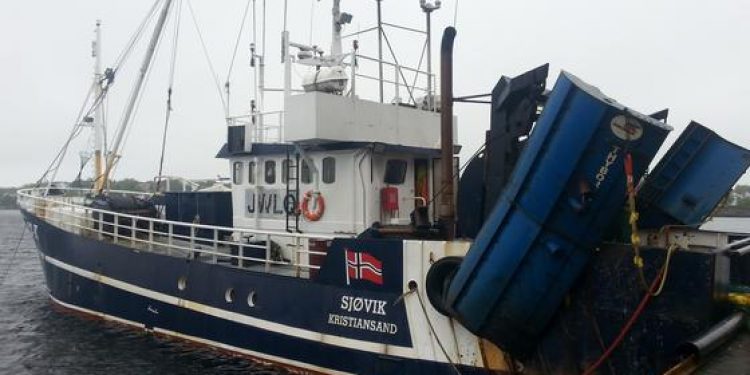A shrimp trawl with a shorter belly filters out smaller shrimp more effectively, according to Norwegian research.
ICES advice identified a problem with smaller grades of shrimp that needed to be addressed, with a large 2013 year class resulting in a large cohort of these smaller shrimp. Work carried out by the Institute of Marine Research (IMR) to modify shrimp gear has showed that a 40% shorter belly sorts out most of these smaller shrimp, without losing the larger and more valuable shrimp.
According to IMR, there is concern over the small shrimp that are below the minimum landing size, and fishermen are also keen to reduce their catches of shrimp that are of a legal size but still too small to fetch a good price, preferring to leave them in the water to grow. Discards of these shrimp ar ebelieved to occur mainly in Sweden where shrimp quotas are low, and the possibility of similar discards in Norwegian waters can not be discounted.
The IMR group worked with fishing gear supplier Skagerak Trål og Notbøteri and the crew of Flekkeroy shrimp trawler Sjøvik to test varying length bellies on shrimp trawls, with the twin-rig trawler towing a standard control trawl alongside the experimental gear with the 40% shorter belly. Catches were assessed separately to compare the two.
Fourteen hauls were taken, with a catch of 11 tonnes, after the final modifications to the gear and the results showed a clear size selection of shrimp, with smaller grades filtered out. The catch in the test trawl caught around 5% less, with the reduction due mainly to significantly lower amounts of small shrimp, while catches were composed of 12% more large shrimp, 7% less medium shrimp and 60% less small shrimp, as well as a substantial reduction in catches of glass shrimp.
According to the IMR team, the results are positive as the objective has been achieved without the need for a sorting grid and without needing to change trawl handling practices. But the IMR researchers believe that there is still room for further improvement and Sjøvik will continue trials in the spring.









